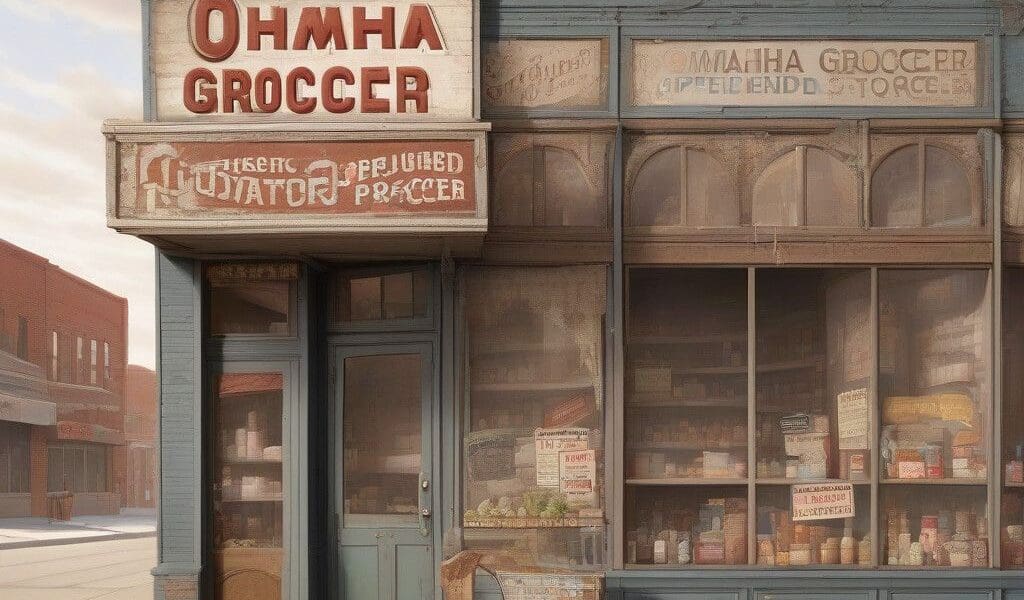A significant chapter in Omaha’s grocery landscape has come to a close with the announcement that Wohlner’s Neighborhood Grocery & Deli will shut its doors after nearly 106 years of service. Founded in 1918 by Al Wohlner, this family-owned establishment has been a staple in the community, fostering relationships that transcended typical customer-service interactions. The current owners, Bob and Dianne Kimball, made the difficult decision to retire, emphasizing their gratitude for the loyal customers who have supported them throughout the years.
The announcement, made via social media, highlighted the emotional weight of this closure. “This decision certainly wasn’t easy,” Bob Kimball remarked, reflecting on the deep roots that Wohlner’s has created within Omaha. The couple purchased the store in 2020 from its previous owner, Mike Schwartz, who represented the third generation of the Wohlner family to run the business. Bob, who had served as the general manager for several years prior, expressed a heartfelt commitment to the community, calling it a “family” environment.
In a bid to honor their customers, Wohlner’s is offering a 15% discount on all orders until the closing date, which has yet to be announced. The store’s hours have been adjusted, now operating from 10 a.m. to 6 p.m. daily. This kind of responsiveness and adaptability to customer needs is a reminder of the personalized service that independent grocers like Wohlner’s bring to communities.
Despite its closure, efforts remain to find a new tenant to occupy the grocery space, ensuring the location can continue to serve the community in some capacity. This follows a broader trend in retail where independent establishments face increased challenges due to competition from larger supermarket chains and e-commerce giants.
Independent grocers like Wohlner’s provide a unique shopping experience, often characterized by personalized service, community engagement, and a tailored selection of products. For many customers, such stores also represent a dependable source of quality goods and a slower pace that contrasts with the often impersonal nature of larger retailers.
This situation raises essential questions about the future of independent grocery stores in similar markets. The challenges of rising operational costs, changing consumer behaviors, and increasing reliance on online shopping platforms pose significant hurdles for traditional stores. Research indicates that while consumers appreciate the conveniences of online shopping, many still value the in-person shopping experience for certain items, particularly fresh produce and meats.
As the retail landscape evolves, it is crucial for independent grocers to leverage their strengths, such as community connection and specialization, to compete effectively. For instance, initiatives like community events, loyalty programs, or improved online ordering systems can enhance customer retention and attract new shoppers.
In Omaha’s case, the impact of losing Wohlner’s Neighborhood Grocery might prompt a community-driven effort to support the re-establishment of an independent grocer. Story-driven marketing, where personal histories and community stories are emphasized, might also engage shoppers in a way that draws them back into physical store environments, helping to bridge the gap between traditional and modern retail spaces.
The closure of Wohlner’s serves as a poignant reminder of the changing tides in the world of grocery retail, offering valuable lessons to both consumers and business owners alike about the importance of maintaining personal connections in a digital world.
In conclusion, as we reflect on the legacy of Wohlner’s Neighborhood Grocery, it is clear that independent grocers hold a vital place in our communities that cannot simply be replaced by larger chains or online retailers. Their commitment to quality, service, and community engagement is what has made them irreplaceable assets in the retail landscape. The challenge now lies in finding a way forward that honors this legacy while adapting to contemporary consumer needs.











